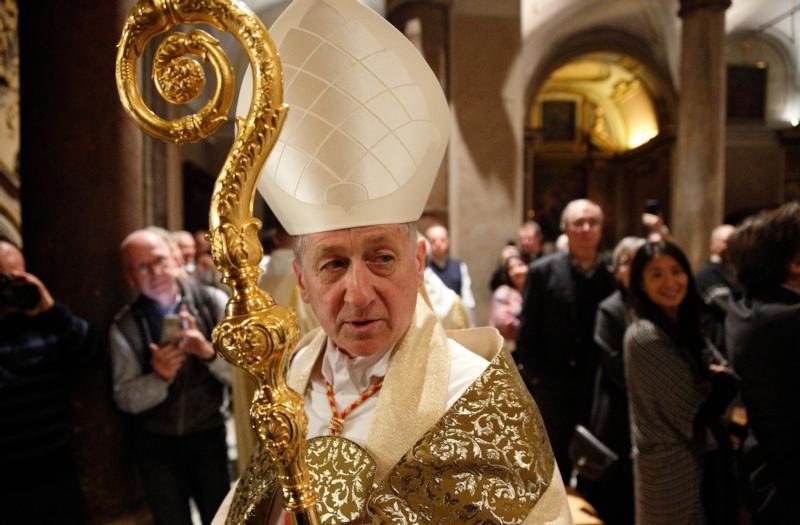Cardinal Cupich on How to interpret Amoris Letitia…(sort of)
“In this present day and age it is true to say that there will be some people who are divorced and remarried who are in a difficult situation which is not of their own making and this situation is, it could be said, a situation which needs to be understood more deeply and with a new paradigm of compassion and this compassion will be one that accompanies and listens to the situation and asks whether in some way it could be said that the first marriage was perhaps not all that it could be and therefore it was inevitable that a second marriage or indeed a third or fourth marriage (which may or may not be marriages in the legal sense but in real life they seem like marriages) could be possibly legitimate and loving relationships which although not technically valid could, in some sense be understood as being a good thing even though some might say it violates the teachings of our Lord but in a different situation some might argue otherwise on the other hand when there are children and the difficulties of the relationship are such that chastity, although strictly speaking is required one has to also recognize the reality of the situation wherein what is possible and what is ideal are not always the same because human nature is such that hard and fast rules which are black and white are not so because there are grey areas and we must therefore come back to ask ourselves about intentions and circumstances and that mitigates guilt and culpability and there is also the wider community to consider and whether these two people who could be man and woman but also might be loving relationship of other kinds which we would not want to rule out completely could therefore be considered and also it could be that therefore personal conscience and moving forward some might wish to say that on the other hand when Our Lord said Let your yea and your nay be nay that he could also be understood in some circumstances to be actually referring to a context in his day which was very different from our own and that it may be possible to re interpret his words as meaning that our yea should be maybe sometimes but we are not always sure and that uncertainty should be seen as a positive contribution to a new understanding furthermore we should also consider that there are rules which Our Lord put in place always using hyperbole to make a point which he knew in his own work of compassion was always and sometimes never but usually the case, and because it is is all terribly terribly complicated I am organizing a series of conferences with all the bishops to discuss this further…







Bam!
I agree with Cardinal Cupich’s closing thought: ‘it is all terribly terribly complicated’
Lost in all the bru ha ha are the very basics of relationship. We are in this wide spread mess because we have failed to teach our young the proper elements of relationship. Admittedly that is hard to teach well and harder to accept enough of it to make proper discernments BEFORE getting married for life.
One of the reasons we married at age 20, 53 years ago, was we understood each of us was independently Catholic, not perfect, but committed to trying our best to live our lives in accordance with God’s Will. As independent Catholics, we could support each other in maintaining our Faith as best we could. God, and His expectations, were important to each of us.
Another reason we married at age 20, 53 years ago, was I asked her this question: “Could you see yourself at age 85 still with me looking back on the life we shared?” She thought a bit and said, “I don’t want to rush it, but I hope we get there.”
I have no answer for those in the current mess. But the future can be, and must be, better. Basics need to be taught much better before people start dating. Discernment must be more thorough before a marriage is made. The Church has major work to do. Parents have major work to do. And people need to listen and think clearly.
Please remember that this post is satire, and not really Cardinal Cupich’s thoughts.